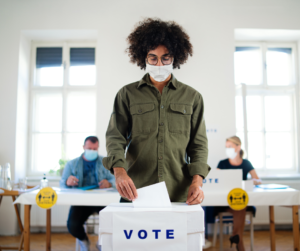
No matter which candidate you vote for, this election and the next term are going to have a significant impact on the future of the U.S., and the team at Facebook wants to slow the spread of political posts that may carry misinformation. The goal of this algorithm’s new campaign is to lessen the risk of violence following the election by limiting the posts that can ‘go viral.’ The algorithm will search for dangerous posts and limit their reach, and these new measures could define more posts than usual as a threat. Here’s how this change could affect your business.
Facebook has altered its algorithm many times in the past, but these changes were only announced to the public when the organization deemed it necessary. Whenever there is a change in the algorithm’s command, other content, like yours, will likely be affected too. If you see a change in your social media reach and engagement, don’t worry. Your posts may not reach as many people during this shift, but there are still best practices for getting your content in front of the right audience, including consistency in your posting schedule, interacting with your audience, targeting your audience’s pain points and engaging your audience with quality media (photos and videos) and messaging.
In addition to this change, the platform stopped accepting new political ads for the week before the election. According to the New York Times, political content will continue to be limited for an undisclosed amount of time after the election.
Twitter also rolled out its strategy for combating misinformation, with one feature asking users to add their own context before retweeting. YouTube will also be monitoring its search engine for false information about voting or the election and will host live updates later tonight.
Be on the lookout for false information and fake posts that seem to come from reputable sources, even through text messages and digital and TV ads. If you interact with content on social media today and in the next few weeks, make sure you are confident in the validity of the message. The last thing you want to deal with is your business sharing inaccurate information.

CONTACT US today for help with content creation and social media management, during the algorithm change and beyond.











